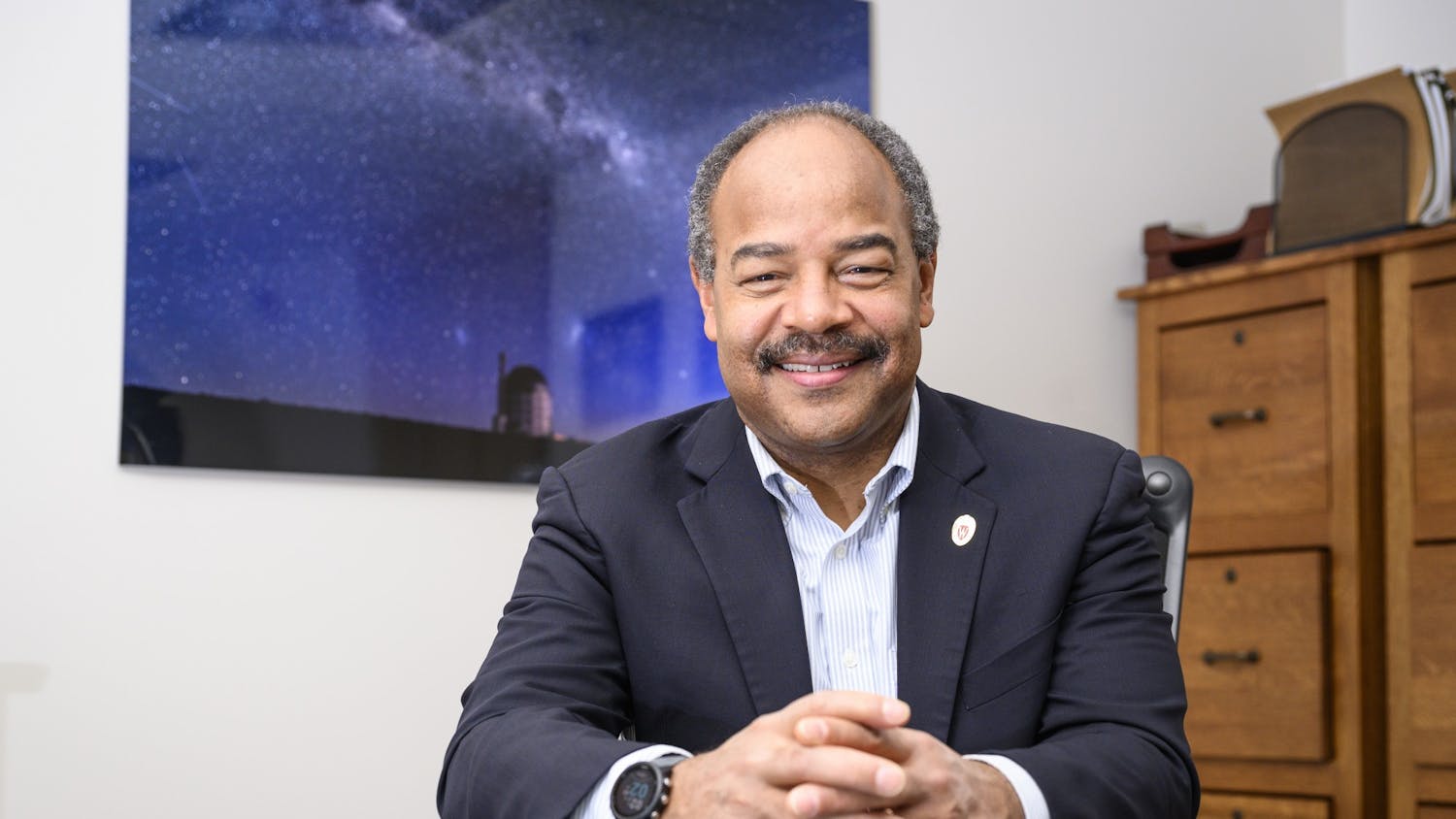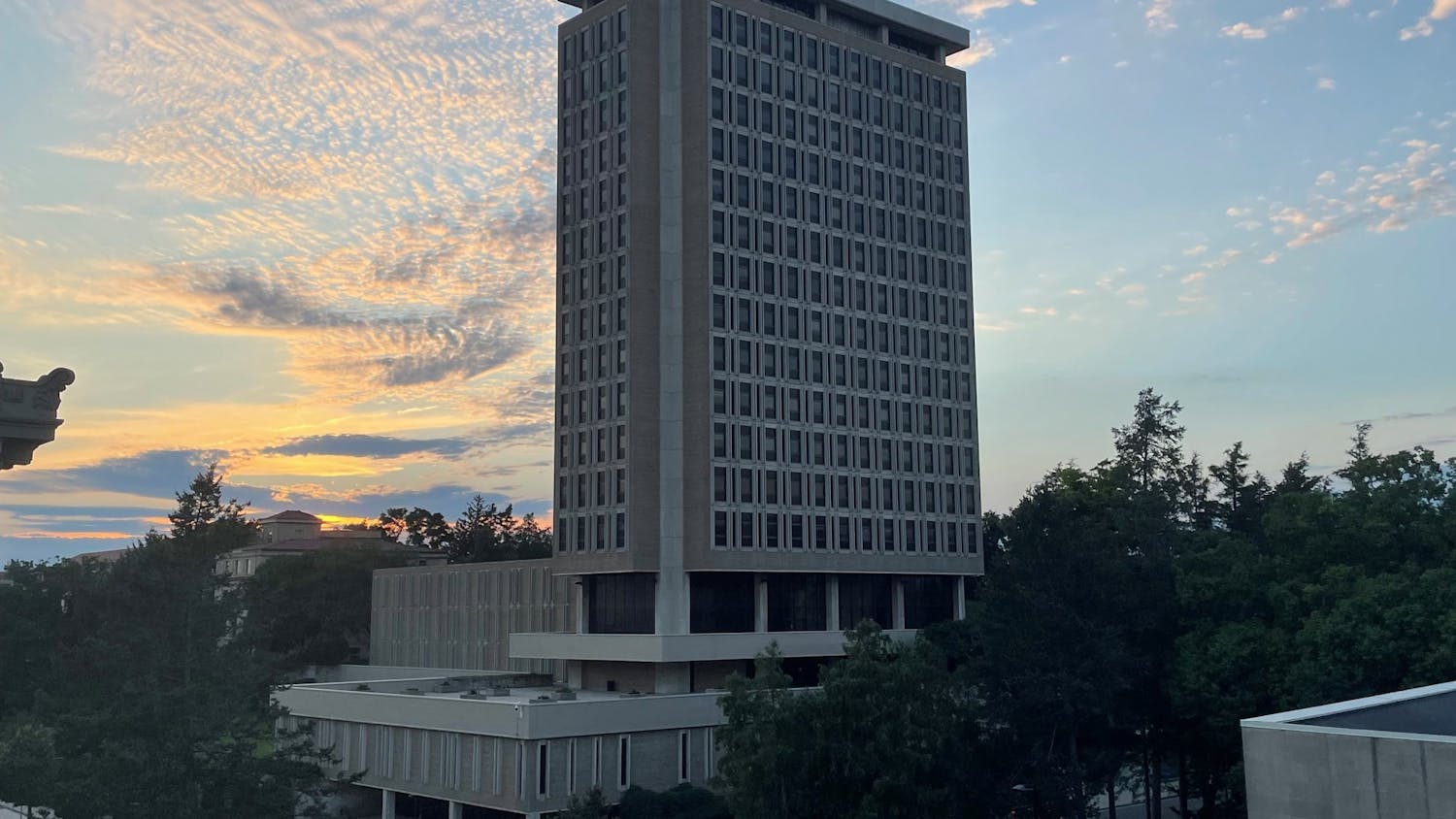The last few sessions of Associated Students of Madison Student Council have been characterized by bitter debates over a host of issues, according to many representatives.
Members have battled over hiring a speaker for the senior class, ASM constitution changes and funding travel to conferences. Often these arguments were split across partisan lines.
The political climate now in the 20th session, many representatives say, has the least animosity in years.
“It’s a lot more tame ... things are a little bit less contentious,” Student Council representative and former Vice Chair Maria Giannopoulos said.
ASM Chair David Gardner said he has focused on removing partisan factions from student council.
“This year we’ve seen that there are no political divisions. People have learned to set aside political allegiances and slates,” Gardner said.
At an internal budget hearing Wednesday, Gardner said the conversation was much more rational than in years past, even throughout disagreements.
One dispute at the hearing, which has come up for several years, was whether the internal budget should include membership dues to the United States Student Association, a student education and advocacy group. Some ASM members criticized the group as too liberal, citing examples such as the group’s position on immigration reform.
Giannopoulos said although disagreements did occur in the way they had among past political groups, the divisions were less clear-cut than in years past and involved individuals took stances that may not have been expected.
Gardner said he believes the lack of division is a reaction to issues that have divided the council in previous years.
“We really firmly decided that having a sense of political allegiance is absolutely counterproductive to serving students,” Gardner said.
In terms of the political atmosphere as a whole, Giannopoulos said, the council this year is much more moderate.
“People are a little bit more closer to the middle but still on the left,” Giannopoulos said. “I think it’s kind of like a mirror effect. I’m closer to the middle but on the right, other people are closer to the middle but on the left.”
Some members said many representatives on Student Council may still be getting used to the process. Giannopoulos said some of the more extreme council members from previous years are not in council anymore.
The 18th session of Student Council, from 2011-’12, was “dominated by the progressively minded folks,” former Chair Andrew Bulovsky said.
Allie Gardner, the chair of the 18th session, said many representatives were focused on activism and social justice work, but this did not necessarily mean they leaned right or left on the political spectrum.
Nineteenth session, from 2012-’13, by many accounts was dominated by a faction calling itself the “Good Old Boys,” which Bulovsky organized and Giannopoulos also identified with.
“My own faction … had about two-thirds of Student Council,” Bulovsky said. “We all ran together, we ran the campaign and we mobilized and we took most of the seats in Student Council. And it made for a more conservative, more moderate, more rational year of ASM.”
Giannopoulos said the group’s name stemmed from a derogatory remark made by a former Student Council representative that certain members were “just a bunch of good old boys.” GOB members spanned the political spectrum, but she said one of the unifying traits of the party was an interest in preserving the prestige of the university.
A leader in ASM, who asked to remain anonymous, said the GOB did not have a firm shared ideology, but was for the most part opposed to the grassroots campaigns ASM undertakes each year, believing them to be ineffective. The leader said the GOB wanted to put a greater emphasis on being the “yes man” to administration and had minimal accomplishments besides Varsity Day, a campaign to use student segregated fees to bring a high-profile speaker to campus.
Giannopoulos said the GOB had a central, more unified core and also had its own fringe groups. One of these groups was the Catholic Caucus, which condemned ideas like Varsity Day as fiscally irresponsible.
“I see Andrew and I as John Boehner and the Catholic Caucus as the Tea Party, so kind of creating divisions within our party,” Giannopoulos said. “It was … hard for some of the things that we wanted to do.”
Further controversy in the 19th session stemmed from BOOP, a campaign of individuals many describe as more left-leaning and progressive. After some BOOP members were accused of violating election policies while campaigning in Library Mall, all members were banned from participating in the first meeting of the session, when many leadership positions were elected.
Gardner, a freshman at the time, was part of BOOP. He said in hindsight he regrets his decision to join.
“I wasn’t fully aware of the implications that that kind of political activity had on ASM,” Gardner said. “But following that experience I think that actually … allowed me to see that this is really detrimental to our organization.”
Part of the tensions between the GOB and other ASM members was a pull between grassroots and governance and prestige-focused approaches, the anonymous ASM leader said.
Last session, partly due to qualms with a USSA conference, Giannopoulos organized a segregated fee-funded trip to the Conservative Political Action Conference. At an earlier USSA conference she had attended, she said audience members had yelled derogatory comments about Gov. Scott Walker, and ASM members had been arrested for protesting.
Many student council members say political parties on ASM are not productive. Student Services Finance Committee Chair and Student Council representative David Vines gave the example of officially organized parties at other universities.
“When you have a party name next to you … people start disagreeing with each other or start arguing or just doing this political grandstanding just because they think that’s the game that they’re supposed to play,” Vines said.
Bulovsky said he sees an advantage to the political parties that have existed in ASM.
“I think that political parties are a good thing,” he said. “I think if you don’t have disagreements … if everything’s unanimous, you develop groupthink where people don’t question anything.”
Vines also said although these problems have occurred in ASM, especially in the past two years, the current lack of formalized parties “is one of the best things we have going for us.”






